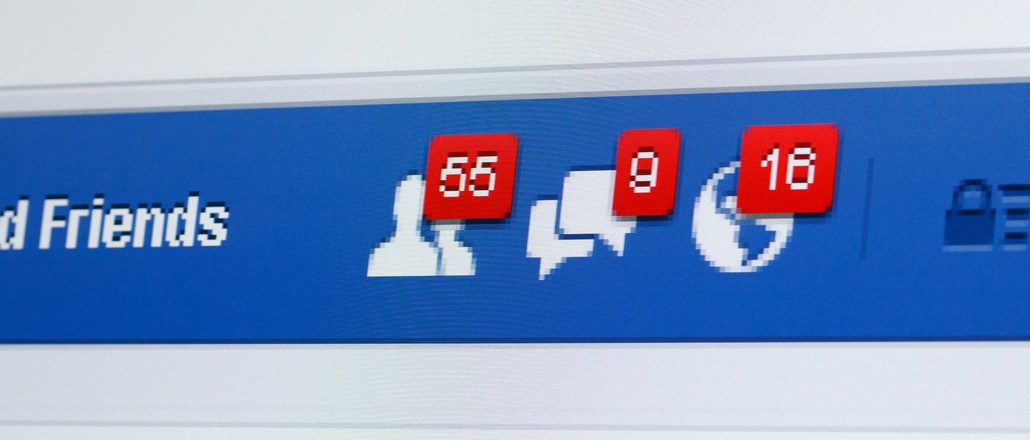Secure your place at the Digiday Publishing Summit in Vail, March 23-25

Facebook says it’s not worried about the level of sharing from everyday users of the social network, but with a rival like Snapchat surging, the threat to its empire is real.
The sharing question has emerged as one of the few potential cracks in Facebook’s social media dominance, and there have been some concerns that people are starting to use Facebook more like they use Twitter — passively consuming content instead of creating new material.
There have been reports that everyday users are not posting as much personal content as they used to, and that the company has applied pressure internally to develop products that encourage more people to share more photos, videos and personal highlights. The sharing question has become so prominent that it was raised at last week’s earnings call between Facebook executives and Wall Street analysts.
“Facebook’s mission is to enable everyone to share everything with anyone,” said Ben Tregoe, svp of business development at Nanigans, a Facebook marketing tech partner. “If Facebook is just seen as a place where people just share BuzzFeed articles and political viewpoints but don’t share anything personal, that would be a major failing. You need massive user engagement for platforms to work.”
Facebook is meeting the engagement challenge with updates to the platform like live-video capabilities, which should encourage more everyday users to live stream their comings and goings, Tregoe said. It’s also reportedly building a new camera app that would encourage more sharing of photos and videos to the social network.
Facebook still accounts for about 20 percent of time spent on mobile devices, and it owns Instagram, WhatsApp and Messenger, three of the top apps in the world in terms of audience. However, a report from The Information said there has been a 20 percent decline in “original” content from users in the past year.
Meanwhile, Snapchat recently claimed it topped 10 billion video views a day, that’s mostly friends tapping through footage shot by other friends, most of it user generated. Last time it divulged such stats, Facebook was at 8 billion video views a day, but recently it started only reporting hours spent watching video: 100 million a day.
The number of videos consumed is an important indicator of sharing on the social platforms because much of that content was created by the users, especially on Snapchat where most of the activity is from people sharing personal videos with each other.
Zuckerberg pushed back against the reports of sharing troubles during the earnings call.
“Overall, sharing is up across Facebook, and people are spending more time on Facebook and the whole family of apps. That’s not just the case for the aggregate for the growing community, but it’s also the case on a per person basis, in terms of people sharing and spending more time individually,” Zuckerberg said.
He explained that “sharing” metrics could be skewed because people now spend more time on mobile than on desktop devices. On desktop, people were known to take entire photo albums from their digital cameras and upload them to Facebook; now people take one photo from their phones and upload it.
For much of its existence, Facebook users were the epitome of prolific social media users, posting every little thought to the platform, but now Snapchat is seen as even more addictive for over-sharers.
Robert Peck, analyst at SunTrust Robinson Humphreys, has reported on Snapchat’s potential to change the social media landscape, and “original” content is one of its core strengths.
“Snapchat is creating a platform for its users to share the regular, everyday, temporal activities,” Peck wrote in a new report.
Many of Snapchat’s more than 100 million daily users obsessively create Snaps and view other people’s.
“This is part of the reason Facebook bought Instagram and WhatsApp. It’s very willing to disintermediate itself to continue to find ways to drive the platform forward,” said Matt Minoff, svp of ad platforms at Meredith Digital. “At the end of the day, everyone is competing for limited time and consumer attention. It’s a zero-sum game, and every minute someone is spending on another platform is a minute they’re not spending on Facebook.”
More in Media

How creator talent agencies are evolving into multi-platform operators
The legacy agency model is being re-built from the ground up to better serve the maturing creator economy – here’s what that looks like.

Why more brands are rethinking influencer marketing with gamified micro-creator programs
Brands like Urban Outfitters and American Eagle are embracing a new, micro-creator-focused approach to influencer marketing. Why now?

WTF is pay per ‘demonstrated’ value in AI content licensing?
Publishers and tech companies are developing a “pay by demonstrated value” model in AI content licensing that ties compensation to usage.





